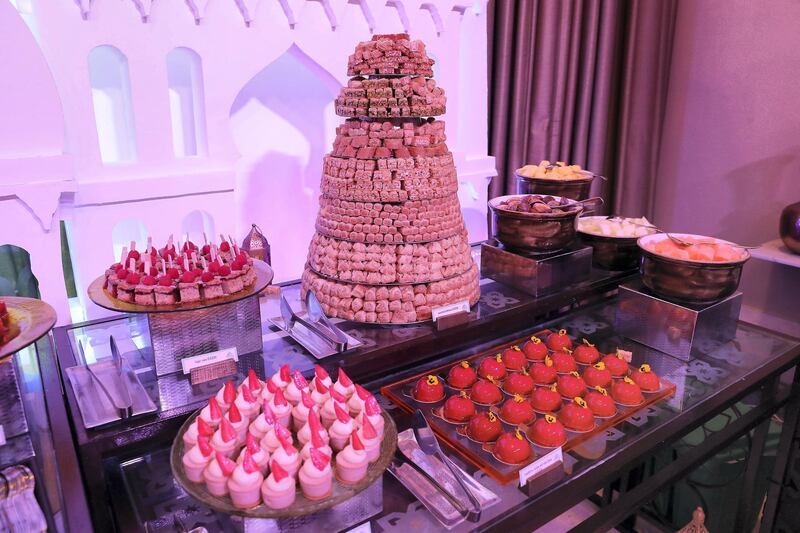The lavish spreads seen around the country in hotels, restaurants and homes for iftar and suhoor might be a feast for the eyes – and lend themselves to an avalanche of Instagram-worthy moments – but unless every morsel is eaten, there is a danger that the pretty mounds of food piled high will be left uneaten and go to waste. The all-you-can-eat buffet might be a tempting option after a long day fasting but it is worth taking a moment to remember excess and waste go against the essence of the holy month, when abstention from food and drink should act as a reminder of those less fortunate. Ramadan is a time to spurn consumerism and focus on more spiritual pursuits, as well as behaving with compassion and putting more thought into one's actions. According to Dubai Municipality, food waste makes up 22 per cent of all landfill in Dubai and more than doubles during the holy month. That is a shocking figure, particularly at a time when restraint and humility are called for. Across the country, food wastage amounts to 197 kilograms of food per head per year, compared to 95kg in Europe and 115kg in the US. According to Habiba Al Marashi, chairwoman of Emirates Environmental Group, most food waste is a direct result of "lavish iftars at restaurants and other social gatherings". All-you-can-eat buffets typically display more food than guests can actually consume and while there are increasing calls to be more responsible with the leftovers, most end up on the rubbish heap instead of feeding those in need.
This is not to say that the problem is exclusive to the UAE. This situation is replicated in other nations, such as Malaysia, as Muslims worldwide gather with friends and family every night to break their fast. But conviviality and the famous Arab hospitality – which sit at the core of Ramadan traditions - need not be synonymous with excess. This risks turning an Islamic tradition into a commercial one. Greater efforts are needed from hotels and restaurants to curb this wastefulness and ensure leftovers are not wasted, whether that involves preparing less food, offering a la carte menus instead of buffets or distributing leftovers. Some venues have already teamed up with charities and orphanages and donate leftovers. Other initiatives like the Ramadan Sharing Fridges scheme enable residents to repurpose meals for hard-up workers while ride-hailing app Careem has offered to pick up food and deliver it where it is needed. Beyond that, individual mindsets around food consumption must also change. As people become more conscious of wastage and spurn excessive buffets for more sensible dining options, venues will be forced to mirror consumer choices.





